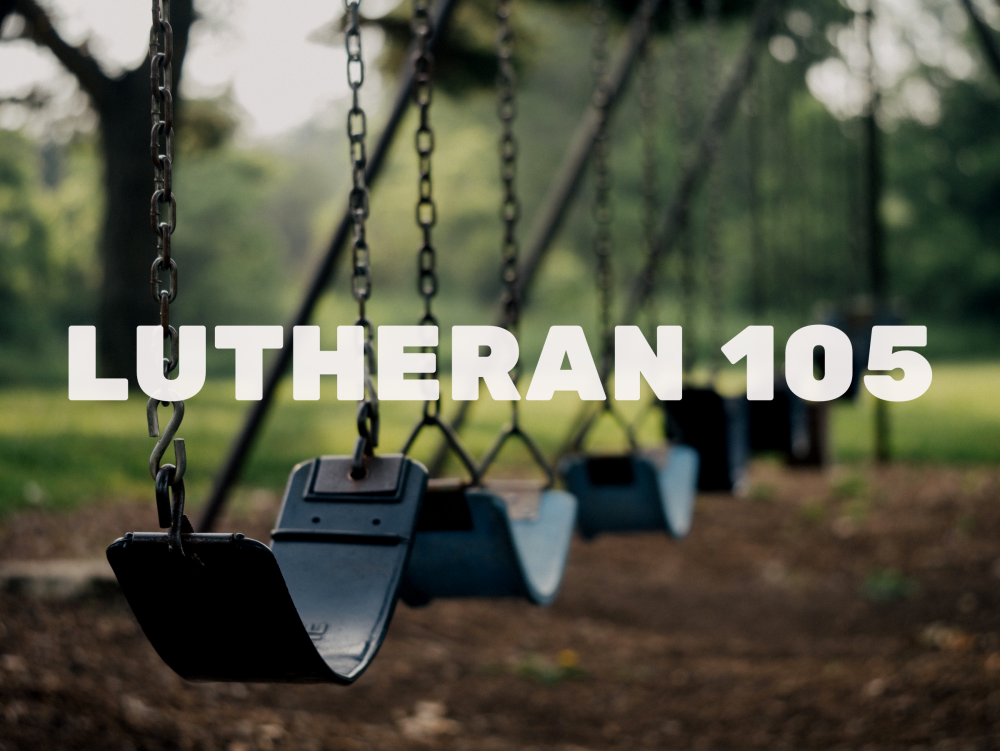Last month we considered the irreducible core of our Lutheran Confessions: we are saved only, only by grace. But the Confessions say more than this. We are saved by grace – through faith. And only, only through faith.
Here again we have a pair of interesting words, so very often misunderstood.
We think of “faith,” often enough, as a kind of action. We imagine carefully collecting doctrinal assertions: we formulate something to believe about creation, then something about “the fall,” something further about processes of redemption, and so on. We imagine something that happens between our ears: an intellectual activity, a theological pursuit, or maybe some kind of philosophical inquiry. We “do” faith. We “get” faith.
It is natural, I suppose, to think of faith in this way. We are experiential creatures: we know the world by acting in it. Yet thinking in this way misses the key characteristic of biblical faith – the faith that we find described in our confessional documents. Faith is not an action. It is not something that we will. It is not something that we conclude intellectually, or assert philosophically – as we might, let’s say, decide our political affiliation or the church we will attend.
Faith is a gift of God’s grace. Faith is created in our hearts by the action of God’s Word. Faith, in short, is a miracle.
Here is the confessional formulation: “We receive forgiveness of sin and become righteous before God by grace, for Christ’s sake, through faith, when we believe that Christ suffered for us and that for his sake our sin is forgiven and righteousness and eternal life are given to us” (AC IV).
There is something to believe, it is certainly true: we trust that Christ suffered what he suffered for us, and that the life he gives he gives to us. To us, precisely, as preposterous as it seems. Yet we don’t do the suffering. We don’t do the giving. And it is not our own experience of “trusting” or “believing” that accomplishes the interchange. The locus of faith is not between our ears: we do not think it up.
Faith is like holding tightly the rope of a swing, as you lean your head back and kick your feet high into the air. Do you remember what that feels like? Faith is not the rope. Faith is not the seat of the swing. And faith doesn’t push you into the air. Faith is the leaning, trusting, holding, clinging – without which you fall on your head.
Faith is “the light of the knowledge of the glory of God in the face of Jesus Christ,” to borrow a marvelous image from St. Paul (2 Corinthians 4:6). It is knowing God in an utterly new way – by looking into the face of Jesus. It is finding God’s Fatherly heart – by the grace that we find in Jesus. More accurately, it is being found by God’s Fatherly heart. It is being found by God’s grace. It is leaning, trusting, holding, clinging to the grace of God revealed in Jesus Christ.
In this same wonderful image, we see how faith is created, too. It is spoken into being. As God spoke into the darkness once upon a time and created the stars, he speaks into our hearts – and faith is born. “God, who first ordered ‘light to shine in darkness’, has flooded our hearts with his light,” St. Paul explained (4:6, Phillips). “[Faith comes] from hearing,” he adds elsewhere (Romans 10:17).
The Confessions present a similar image. Faith is “conceived by the Word” (Ap. IV, 73). It is birthed by God’s Word. God “imparts, increases, and strengthens faith through the… Word” (L.C. II, 62, italics added). Faith learns to “see in the dark,” Luther explained. It does not see anything with irrefutable certainty. Yet it hears a certain, reliable Word. Faith then becomes “the assurance of things hoped for, the conviction of things not seen” (Hebrews 11:1). “Faith [sees] where nothing whatever is visible; it feels where nothing is to be felt” (WLS, 1378) – because it hears the word of grace, and clings.
Our Confessions qualify the concept with a little word we have seen before: “sola.” Only through faith. Nothing more. This is the way saving faith must work.
Imagine the horrors of conscience we might experience if there were something “more” than simple faith. (But maybe you don’t need to “imagine”: maybe you have experienced doubts like these yourself.)
What if a particular set of intellectual assertions were required for salvation? What if you had to understand the complexities of the Trinity, for example, if you hoped to be saved? What if you had first to digest the nuances of the “Filioque” debate, if you aspired to heaven? How would you ever know that you knew enough, or had reached the intellectual bar?
Or what if some human endorsement were required for salvation? What if your pastor had to vouch for your competence in faith? What if you had to present a letter of recommendation from your bishop, or your Sunday School teacher, or maybe your mother or dad, when once you arrived at the gates of heaven? How would you ever know that you had collected enough affirmations to gain entrance to paradise?
And what if the grace of Jesus Christ were not as sufficient as you had supposed? What if “works” were required for salvation, after all? Have you worked enough? Have you performed acceptably? How would you ever, ever know? (If you don’t have this question firmly settled, you may now take a moment to shudder.)
Faith steps into our shuddering and settles it. It steps into our darkness with light. Faith fixes our eyes on Jesus, and finds him sufficient. When we get this right, we stand. When we get it wrong, we must certainly fall on our heads.
Other posts in this Lutheran series:
